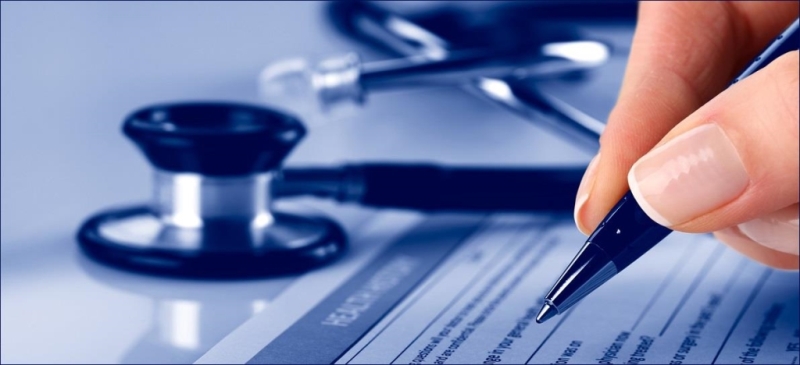Essential Requirements for Medical Billing: A Thorough Guide too Success in Healthcare Revenue Cycle
In teh complex world of healthcare, efficient medical billing is paramount. This guide covers the essential requirements for medical billing, ensuring healthcare providers can maximize revenue and minimize errors. Whether you’re a healthcare administrator, a medical biller, or an aspiring professional in the field, understanding and implementing these strategies will pave the way for success in the healthcare revenue cycle.
Understanding Medical Billing
Medical billing is the process of submitting and following up on claims with health insurance companies to receive payment for healthcare services. This intricate part of the healthcare industry plays a crucial role in ensuring that healthcare providers are compensated for their services. The revenue cycle encompasses billing, insurance verification, claims submission, and payment collection. To navigate this cycle effectively, professionals must be well-versed in various essential components.
1. Knowledge of Medical Coding
Medical billing relies heavily on accurate medical coding. This is the process of converting healthcare diagnoses, procedures, and medical services into global alphanumeric codes. Familiarity with codes such as ICD-10 (International Classification of Diseases) and HCPCS (Healthcare Common Procedure Coding System) is essential. Without effective coding, the billing process can lead to claim denials, delayed payments, or legal issues.
Key Points
- Understanding of disease and procedure codes
- Regular updates on coding changes and guidelines
- Importance of coding accuracy for successful claims
2.Claim Submission Procedures
The process of submitting claims requires attention to detail and adherence to specific protocols. Understanding the requirements of different insurance providers is crucial. Each insurer may have unique rules regarding form submissions, documentation requirements, and timelines.
Best Practices for Claim Submission
- Verify Patient Eligibility: Confirm insurance coverage before services are provided.
- Complete documentation: Ensure all necessary documentation is included for each claim.
- Electronic Claims Submission: Utilize electronic claim submissions for efficiency.
3.Payment Posting and Reconciliation
Once claims are submitted, it’s essential to post payments accurately and reconcile accounts. Payment posting involves updating patient accounts with payments received. This requires a keen eye for discrepancies and understanding how to communicate effectively with payers.
Steps for Effective payment Posting
- Track all payments made by patients and insurance providers.
- Perform regular account reconciliations to identify unpaid claims.
- Maintain accurate records for audit purposes.
4.Appeal Processes for Denied Claims
Denied claims can considerably impact revenue. Thus, understanding how to navigate appeals is an essential skill for medical billing professionals. Developing a systematic approach to identifying the cause of denial and crafting compelling appeal letters is key to recovering lost revenue.
Common Reasons for Claim Denials
- Missing patient information
- Incorrect coding
- Services not covered by insurance
5.Regulatory Compliance and Security
Healthcare billing professionals must remain compliant with regulations such as HIPAA (Health Insurance Portability and Accountability act) to safeguard patient information. Understanding compliance requirements reduces the risk of data breaches and protects patient privacy.
Key Compliance Considerations
- Regular training on HIPAA guidelines
- implementing secure data handling practices
- Conducting audits to ensure compliance
6. Skills and Training
A successful career in medical billing requires a combination of skills and formal training.Essential skills include attention to detail, analytical thinking, and effective dialog. Enrolling in accredited courses or obtaining certifications, such as the Certified Professional Coder (CPC) or Certified Billing and Coding Specialist (CBCS), can enhance your expertise.
Training Resources
- Online courses from recognized institutions
- Certification programs
- Workshops and seminars
Benefits of Effective Medical Billing
Implementing effective medical billing practices can lead to numerous benefits, including:
- Increased revenue for healthcare providers
- Reduced claim denials and faster payment cycles
- Improved patient satisfaction through obvious billing practices
Case Studies: Success through Effective billing Practices
Consider the following case studies that showcase how implementing robust medical billing practices led to success:
| Healthcare Provider | Challenge Faced | Solution Implemented | Outcome |
|---|---|---|---|
| ABC Hospital | High claim denial rates | Training staff on coding accuracy | 30% reduction in denials |
| XYZ Clinic | Slow payment collection | Adoption of electronic billing | 25% increase in revenue cycle speed |
Practical Tips for Successful Medical Billing
To further enhance your medical billing efforts, consider the following practical tips:
- stay updated with changes in billing codes and regulations.
- Utilize billing software for streamlined processes.
- Regularly communicate with insurance companies to clarify claims.
Conclusion
Effective medical billing is a cornerstone of financial success in the healthcare industry. By understanding the essential requirements, implementing best practices, and staying compliant with regulations, healthcare providers can streamline their revenue cycle and enhance their overall operational efficiency. This comprehensive guide to medical billing will equip you with the knowledge and tools necessary for success in the healthcare landscape.



